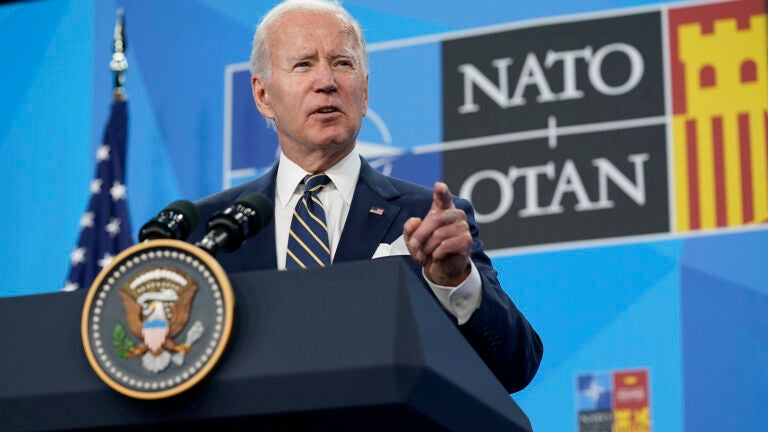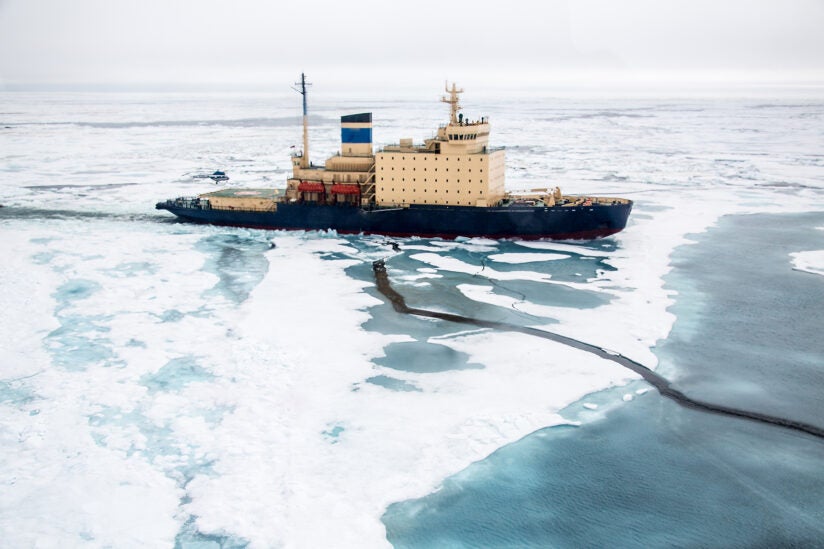
NATO summit: USC experts discuss Sweden’s pending alliance, uncertainty looming over Ukraine
As Russia’s war in Ukraine continues, world leaders convening in Vilnius, Lithuania, face divisions over Ukraine’s membership bid. USC experts weigh in.
As NATO’s annual summit continues into its second day Wednesday, Turkey appears to have dropped its opposition to Sweden joining the organization — a sign that discussions this round will focus on the Russian war on Ukraine, USC experts say.
“The NATO summit in Vilnius is one of the most important ever because of its location, timing and agenda, even if very little is likely to be settled there,” said Patrick James, dean’s professor of international relations at the USC Dornsife College of Letters, Arts and Sciences.
The NATO summit in Vilnius is one of the most important ever because of its location, timing and agenda.
Patrick James, USC Dornsife
James explained that holding the conference in Lithuania, which shares a border with Russia, has naturally amplified the visibility of NATO proceedings — and internal disagreements over Ukraine’s bid for membership.
“While expanding membership in NATO might seem like a good thing, the organization already is unwieldy, and we have seen how that is playing out in the European Union,” said James, who also directs the USC Center for International Studies.
“The troubled United States faces the usual challenge of preserving cohesion in an alliance that many members consider essential to their safety but not worthy of any significant financial contribution,” James said.
Sweden’s bid clears a major obstacle
In a surprising turn of events on the eve of the summit, Turkish President Recep Tayyip Erdo?an announced his support for Sweden’s bid to join the alliance, marking a breakthrough after nearly a year of resistance. However, the bid still requires approval from the Turkish Parliament.
Sweden’s interest in NATO membership represents a significant departure from the nation’s long-standing policy of military non-alignment, a shift that reflects changing security dynamics in the region and mounting concerns about Russian aggression. The United States has long recognized the strategic importance of Sweden as an ally, and President Joe Biden’s administration has been outspoken in its support for the Nordic country’s membership in the weeks leading up to the summit.

“The Arctic is poised to become a stronghold of NATO presence. We can expect ongoing discussions to revolve around the significance of the Arctic in global affairs as world leaders prepare for more military exercises in the North Atlantic, Barents Sea and greater Arctic region,” said Steven Lamy, professor emeritus of political science and international relations and spatial sciences at USC Dornsife.
“These strategic exercises aim to reinforce the alliance’s presence and counter the Russian Bastion strategy, rally support for Ukraine, deter potential aggression, and ensure stability amid emerging security threats,” Lamy said.
Experts point out that if Sweden were to join NATO, following Finland’s confirmed membership earlier this year, seven out of the eight countries comprising the Arctic Council — Canada, Denmark, Finland, Iceland, Norway, Sweden, and the United States — would be NATO allies. That would leave Russia as the sole non-NATO member within the Arctic Council.
Turkey’s shift in position toward Sweden’s membership was made possible, in part, by the United States’ decision to contribute its F-16 fighter jets to Turkey, a move that would strengthen NATO’s capabilities and was key in negotiations with Turkey, experts say.
NATO leaders split over Ukraine’s ambitions
Ukraine has expressed its desire to join NATO, seeking increased security and closer ties with its European neighbors. But NATO leaders hold differing opinions on when will be the right time for Ukraine to become a member.
“We can expect outward unity but internal discord. NATO members will project an image of cohesion and consensus over the war in Ukraine, but this cannot hide deep divisions,” said Robert English, associate professor of international relations, Slavic languages and literature and environmental studies at USC Dornsife.
NATO members will project an image of cohesion and consensus over the war in Ukraine, but this cannot hide deep divisions.
Robert English, USC Dornsife
NATO members, particularly East and West European allies, are also sharply divided on the timeline for Ukraine’s future membership, English said.
The U.S. and Germany have opposed Kyiv’s requests for a concrete timeline, fearing that accepting Ukraine into NATO could heighten tensions and potentially result in a direct confrontation with Russia. Instead, officials have advocated for a cautious approach that focuses on providing practical military assistance to Ukraine and working towards de-escalation with Russia before considering Ukraine’s membership.
Biden made headlines after news broke of the administration’s plans to send internationally banned cluster munitions — air-dropped weapons that scatter smaller explosives over a wide area — to Ukraine, a move that NATO members strongly oppose.
Meanwhile, some NATO allies believe that incorporating Ukraine into the alliance could deter future Russian aggression in the region and safeguard Ukraine’s sovereignty.
Ukrainian President Volodymyr Zelenskyy has criticized NATO for its prolonged deliberations and lack of clarity over the matter.
“All NATO members are straining to provide the missiles and artillery shells that Ukraine is consuming at record rates, and there is frustration at seeing so many Western-supplied tanks and other armored vehicles destroyed by Russia within the first month of Ukraine’s stumbling counteroffensive,” English said.
In a communiqué released Tuesday evening, NATO allies announced its plans to establish a NATO-Ukraine Council as a platform for ongoing discussions with Kyiv, an outcome experts interpret as a compromise that would allow Ukraine to address its immediate needs while keeping the door open for future engagement with NATO.
Biden and Zelenskyy met Wednesday to discuss shared security.



